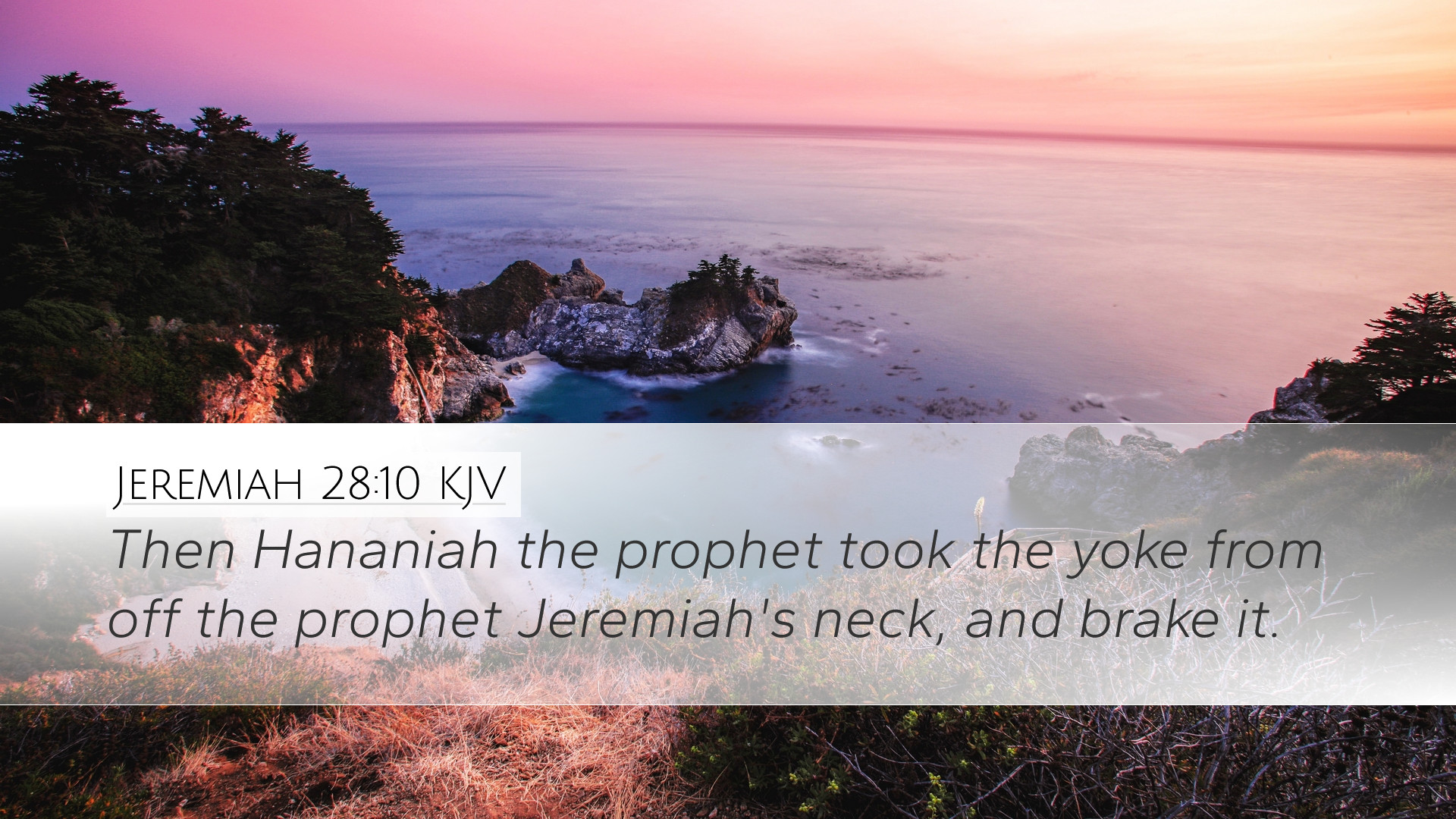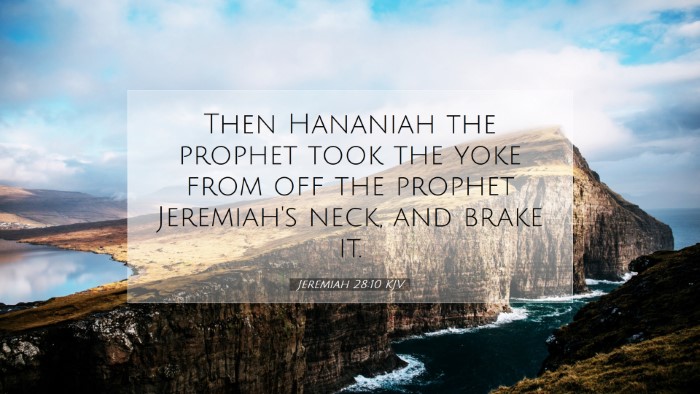Commentary on Jeremiah 28:10
Bible Verse: “Then the prophet Jeremiah went his way.” (Jeremiah 28:10, KJV)
Introduction
This passage is pivotal in understanding the conflict between true prophecy and false prophecy during the time of Jeremiah. The context of the verse is crucial; it occurs during a time when Judah was in a dire situation, facing the imminent threat of Babylonian invasion and exile.
Contextual Background
Jeremiah, often referred to as the weeping prophet, was tasked with delivering difficult messages from God to His people. In Jeremiah 28, we see a contrast between the true prophet (Jeremiah) and a false prophet (Hananiah), who proclaimed peace when God had revealed impending destruction.
Overview of Jeremiah 28
- The chapter opens with Hananiah prophesying that within two years the vessels of the Lord’s house will be restored, contradicting Jeremiah’s warning of exile (Jeremiah 28:1-4).
- Jeremiah responds with measured humility and a challenge to Hananiah's prophecy (Jeremiah 28:5-9).
- The confrontation culminates with Hananiah breaking the yoke from Jeremiah's neck, symbolizing his false hope (Jeremiah 28:10-11).
The Significance of Jeremiah’s Prophetic Response
Following the actions of Hananiah, Jeremiah’s response reflects his commitment to speaking God’s truth. The phrase “Then the prophet Jeremiah went his way” signifies more than mere movement; it underscores his obedience and steadfastness in the face of opposition.
Jeremiah's Obedience and Prophetic Integrity
According to Matthew Henry, Jeremiah’s departure after witnessing the false claim serves as a poignant reminder of the isolation faced by true prophets. He emphasizes that true prophecy often encounters resistance, and it is the faithful adherence to God’s word that defines a true prophet.
Albert Barnes on Prophetic Authority
Albert Barnes elaborates on the authority of prophetic voices and the dire consequences of misrepresenting divine truth. He notes that the act of Jeremiah leaving Hananiah's presence signifies the separation between God’s authentic message and human deception. This separation is essential for maintaining the integrity of God’s message.
Adam Clarke: The Impact of False Prophecy
Adam Clarke addresses the implications of false prophecy and highlights the comfort that many would derive from Hananiah’s message, despite its falsity. He warns that comfort derived from falsehood leads to greater despair when reality contradicts the false hope offered. Thus, Jeremiah’s role is crucial in warning the people against complacency.
Theological Reflections
This passage challenges readers to examine the nature of prophecy and the responsibilities of those who proclaim it. It poses several profound theological questions:
- What is the role of the prophet in communicating hard truths?
- How do we discern between true and false prophecy in our contemporary context?
- What is the response of the faith community when confronted with uncomfortable truths?
Pastoral Applications
Pastors and church leaders can take away several lessons from Jeremiah 28:10:
- The Importance of Discernment: Equip congregants with the tools to discern between true and false teachings, encouraging a deep understanding of Scripture.
- Courage in Truth-Telling: Pastors must embrace the call to speak uncomfortable truths, knowing that faithfulness to God’s message is paramount.
- Addressing False Peace: Address any false hopes within the faith community that might lead to complacency; emphasize that true peace comes from aligning with God’s will.
Conclusion
Jeremiah 28:10 invites one to reflect deeply on the nature of prophetic ministry and the challenges of standing firm in one’s convictions amid societal pressures for comfort and false hope. True prophets, like Jeremiah, must be willing to go their way when faced with opposition, embodying the courage to uphold God’s truth.


